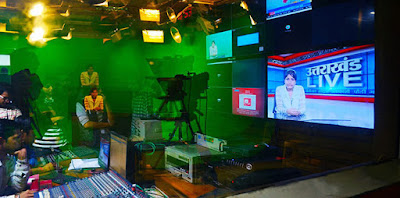Media is the one of the four pillars of a democracy. It enables the populace of a state to transfer and receive the essential information about the internal and external affairs. It unites countries and humankind in general to educate, inform and entertain the masses.
Worldwide connectivity empowers the individual and various groups with the help of a syndicated global structure about the world order and systems. Mass communication and journalism are studies of how the masses interact and mange everyday life in unison. 4 fields of mass communication
Advertising
Advertising is the study and practice of informing the public about products and services offered by the various segments of the society. It penetrates the domestic, national and international barriers to inform the public on advancements, innovations and discoveries that facilitate the individuals with the necessities of the progressive society.
Numerous agencies around the word take responsibility to acquaint the layman with production and service based enterprises. Advertising is subject to consistent revolutions in the wake of the exponential growth of our society. As humans have evolved, the need for entertainment has increased which has created opportunities for individuals and groups to come together and grow simultaneously.
Journalism
Events that have consequences across the oceans influence the lifestyle of the common man. There was a time when news of relevant events would reach the concerned public by the time preventive steps could not be taken. With the arrival of digital journalism, we have gained access to events in the remotest areas of the globe with minimal delay. News of interstellar discoveries or terror attacks travels around the world in seconds.
Journalism is the systematic process of gathering, collating, verifying, editing and presenting through media in the form of news. Through the mediums of newspapers, news channels, radio stations and recently smart phones, Journalism is exploring bounds we didn’t even think of.
Public Relations
Thousands of languages are spoken around the world and the interests of the groups and ethnicities differ even in small states. For effective collaboration a certain amount of public value
Public relations (PR) are the study of effectively communicating and spreading information between individuals or organizations and the public. It may be individuals or organizations gaining exposure to their audience using topics of interest and relevance. PR is differentiated to advertising or marketing by its virtue of coverage without a fee.
Broadcasting
A few centuries ago, people would embark on journeys and their whereabouts would be lost forever in certain cases. With the invention of phones and now smart phones, tracking the whereabouts is quite simple.
Broadcasting is the process of distributing audio or visual content to masses through telecommunication technologies. Radio, TV and internet have opened up spaces for everyone to communicate personal and organizational content. Especially, the internet is the biggest medium to connect, interact and broadcast.
One can choose between numerous of professions in the field of mass communication. Some of the best mass communication colleges offer courses that enable you to get awesome jobs!
Worldwide connectivity empowers the individual and various groups with the help of a syndicated global structure about the world order and systems. Mass communication and journalism are studies of how the masses interact and mange everyday life in unison. 4 fields of mass communication
Advertising
Advertising is the study and practice of informing the public about products and services offered by the various segments of the society. It penetrates the domestic, national and international barriers to inform the public on advancements, innovations and discoveries that facilitate the individuals with the necessities of the progressive society.
Numerous agencies around the word take responsibility to acquaint the layman with production and service based enterprises. Advertising is subject to consistent revolutions in the wake of the exponential growth of our society. As humans have evolved, the need for entertainment has increased which has created opportunities for individuals and groups to come together and grow simultaneously.
Journalism
Events that have consequences across the oceans influence the lifestyle of the common man. There was a time when news of relevant events would reach the concerned public by the time preventive steps could not be taken. With the arrival of digital journalism, we have gained access to events in the remotest areas of the globe with minimal delay. News of interstellar discoveries or terror attacks travels around the world in seconds.
Journalism is the systematic process of gathering, collating, verifying, editing and presenting through media in the form of news. Through the mediums of newspapers, news channels, radio stations and recently smart phones, Journalism is exploring bounds we didn’t even think of.
Public Relations
Thousands of languages are spoken around the world and the interests of the groups and ethnicities differ even in small states. For effective collaboration a certain amount of public value
Public relations (PR) are the study of effectively communicating and spreading information between individuals or organizations and the public. It may be individuals or organizations gaining exposure to their audience using topics of interest and relevance. PR is differentiated to advertising or marketing by its virtue of coverage without a fee.
Broadcasting
A few centuries ago, people would embark on journeys and their whereabouts would be lost forever in certain cases. With the invention of phones and now smart phones, tracking the whereabouts is quite simple.
Broadcasting is the process of distributing audio or visual content to masses through telecommunication technologies. Radio, TV and internet have opened up spaces for everyone to communicate personal and organizational content. Especially, the internet is the biggest medium to connect, interact and broadcast.
One can choose between numerous of professions in the field of mass communication. Some of the best mass communication colleges offer courses that enable you to get awesome jobs!




